United Nations
Biden notes LGBTQ, intersex rights in UN General Assembly speech
President stressed ‘fundamental freedoms’ at risk around the world
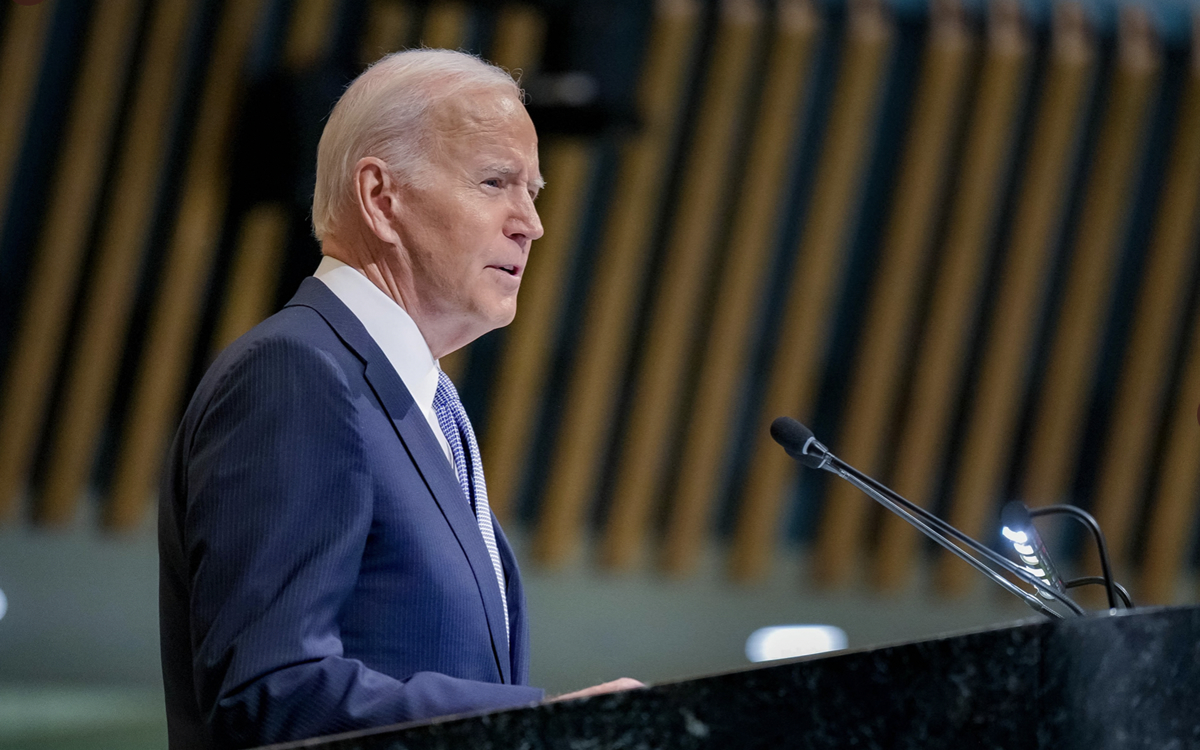
President Joe Biden on Wednesday reiterated his administration’s commitment to LGBTQ and intersex rights abroad.
“The future will be won by those countries that unleash the full potential of their populations, where women and girls can exercise equal rights, including basic reproductive rights and contribute fully to building stronger economies and more resilient societies, where religious and ethnic minorities can live their lives without harassment and contribute to the fabric of their communities, where the LGBTQ+ community, individuals live and love freely without being targeted with violence, where citizens can question and criticize their leaders without fear of reprisal,” said Biden in his speech at the U.N. General Assembly.
Biden specifically referenced the Universal Declaration of Human Rights the U.N. General Assembly ratified in 1948. Biden also noted “fundamental freedoms are at risk in every part of our world” with specific references to the Taliban’s repression of women and girls in Afghanistan, the persecution of pro-democracy activists in Myanmar and human rights abuses against Uyghurs and other predominantly Muslim ethnic groups in China’s Xinjiang province that now former U.N. High Commissioner for Human Rights Michelle Bachelet documented in a report her office released just before her tenure ended on Sept. 1.
Biden also sharply criticized Russia over its war against Ukraine.
“The United States will always promote human rights,” he said.
Biden in February 2021 signed a memo that committed the U.S. to promoting LGBTQ and intersex rights abroad as part of his administration’s overall foreign policy.
Secretary of State Antony Blinken on Monday spoke at a meeting of the LGBTI Core Group, a group of U.N. countries that have pledged to support LGBTQ and intersex rights. Jessica Stern, the special U.S. envoy for the promotion of LGBTQ and intersex rights abroad, was among those who were in attendance.
United Nations
UN Human Rights Council adopts landmark intersex rights resolution
Final vote was 24-0 with 23 abstentions
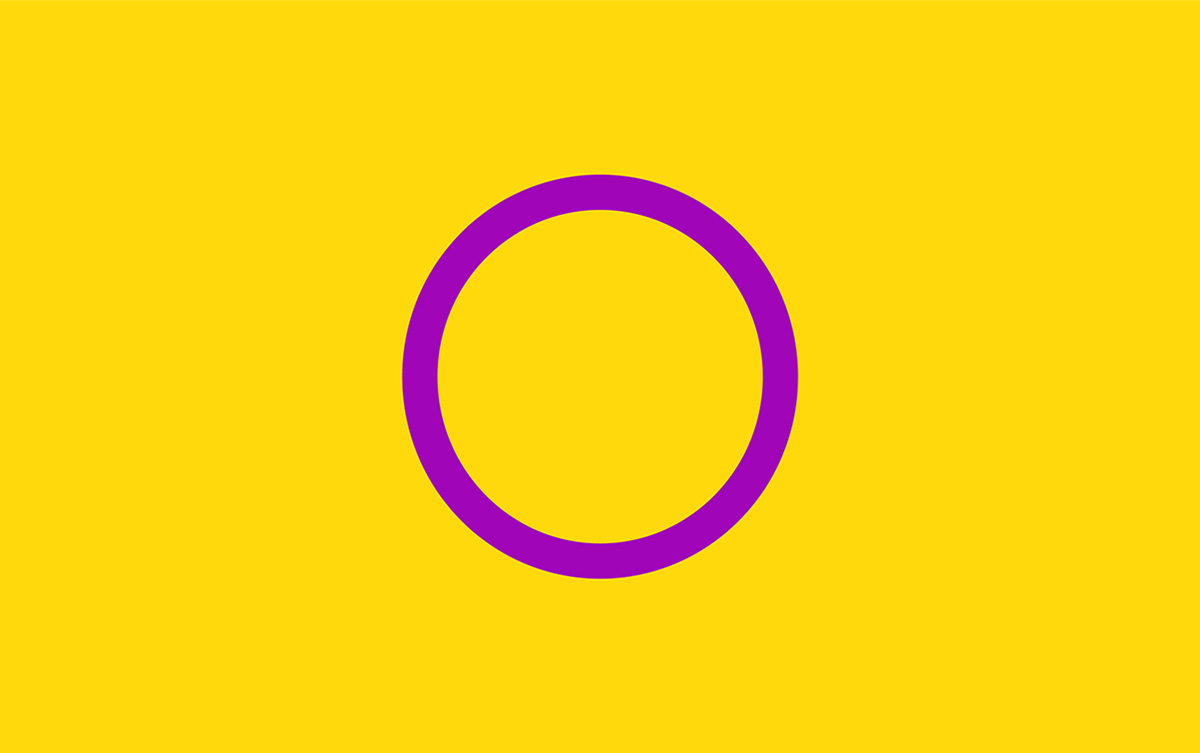
The U.N. Human Rights Council on Thursday adopted a landmark resolution in support of the rights of intersex people.
The first-of-its-kind resolution specifically targets discrimination, violence and harmful practices against those with innate variations in sex characteristics. The resolution received overwhelming support from member states, with none voting against it.
The final vote was 24-0 with 23 abstentions.
The resolution that Finland, South Africa, Chile and Australia proposed urges countries to strive towards ensuring the highest possible standard of physical and mental health for intersex people. It also calls upon the Office of the High Commissioner to compile a report, slated for discussion at the council in September 2025.
This report will assess discriminatory laws and policies; acts of violence and harmful practices around the world, while also identifying best practices and legal protections for intersex people.
“This resolution represents yet another landmark in the international community’s attention to the rights of intersex individuals,” stated 35 advocacy groups in a joint press release they issued after the resolution’s adoption. “Years of concerted efforts by both civil society and states have generated significant momentum, but this resolution could catalyze even more decisive action. By prompting the first official United Nations report on the human rights status of individuals with innate variations in sex characteristics, this vote will elevate awareness to a level that states can no longer ignore, compelling them to take concrete measures.”
The resolution expresses “grave concern” over the violence and harmful practices faced by intersex individuals, including medically unnecessary interventions regarding sex characteristics. It furthermore acknowledges this call to action aligns with statements from various human rights bodies and the commitments outlined in the Sustainable Development Goals, particularly the one that addresses health and well-being.
“We extend our gratitude to the cross-regional coalition of states that spearheaded this resolution, as well as those who supported it,” said the advocacy groups in their press release. “Intersex individuals are present in every corner of the globe, yet they endure pervasive human rights violations, including forced medical interventions, infanticide, denial of legal recognition and discrimination in accessing essential services such as healthcare, education and sports. The United Nations’ intervention to address this situation holds immense significance in improving the lives of intersex individuals worldwide.”
United Nations
US global LGBTQ, intersex rights envoy participates in UN women’s conference
Jessica Stern traveled to N.Y. this week
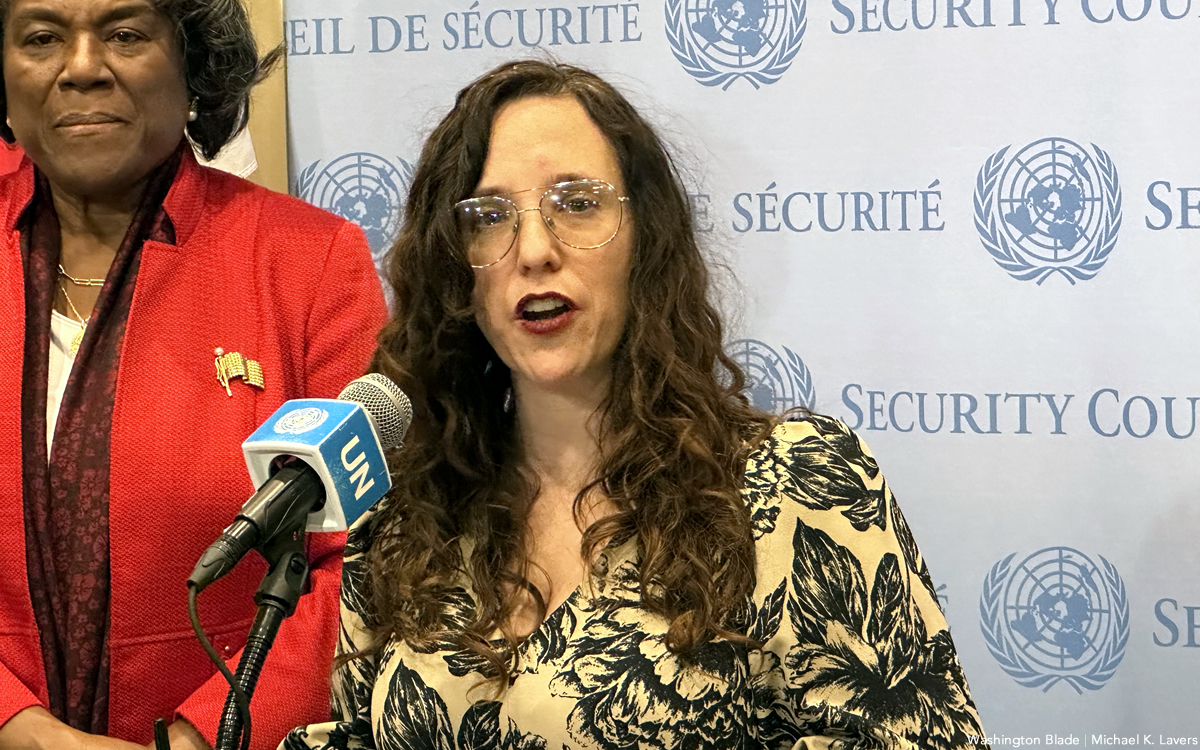
Jessica Stern, the special U.S. envoy for the promotion of LGBTQ and intersex rights abroad, traveled to New York this week to participate in the 68th session of the Commission on the Status of Women at the U.N.
Stern arrived in New York on Tuesday and left on Friday.
The CSW68, the largest annual U.N. gathering on gender equality and women’s empowerment, began on Monday and will take place through March 22 under the theme of “accelerating the achievement of gender equality and the empowerment of all women and girls by addressing poverty and strengthening institutions and financing with a gender perspective.” This year’s session holds particular significance as global statistics reveal persistent gender disparities, with 10.3 percent of women living in extreme poverty and progress towards poverty eradication lagging significantly behind targets.
Accelerating progress towards gender equality necessitates substantial investment, with an estimated additional $360 billion per year needed to achieve key global goals. Stern while in New York sought to advocate for prioritizing policies and programs that address gender inequalities and enhance women’s agency and leadership, noting the transformative impact such investments could have on lifting millions out of poverty and spurring economic growth.
At CSW68, governments, civil society organizations, experts and activists will converge to discuss actions and investments aimed at ending women’s poverty and advancing gender equality.
Moreover, the CSW68 serves as a critical platform for sharing best practices and innovative approaches to addressing gender disparities. Stern participated in panel discussions and workshops, offered insights gleaned from her extensive experience in advocating for the rights of LGBTQ people and marginalized communities.
United Nations
Global anti-LGBTQ rights backlash overshadows UN General Assembly
Uganda’s Anti-Homosexuality Act signed into law in May
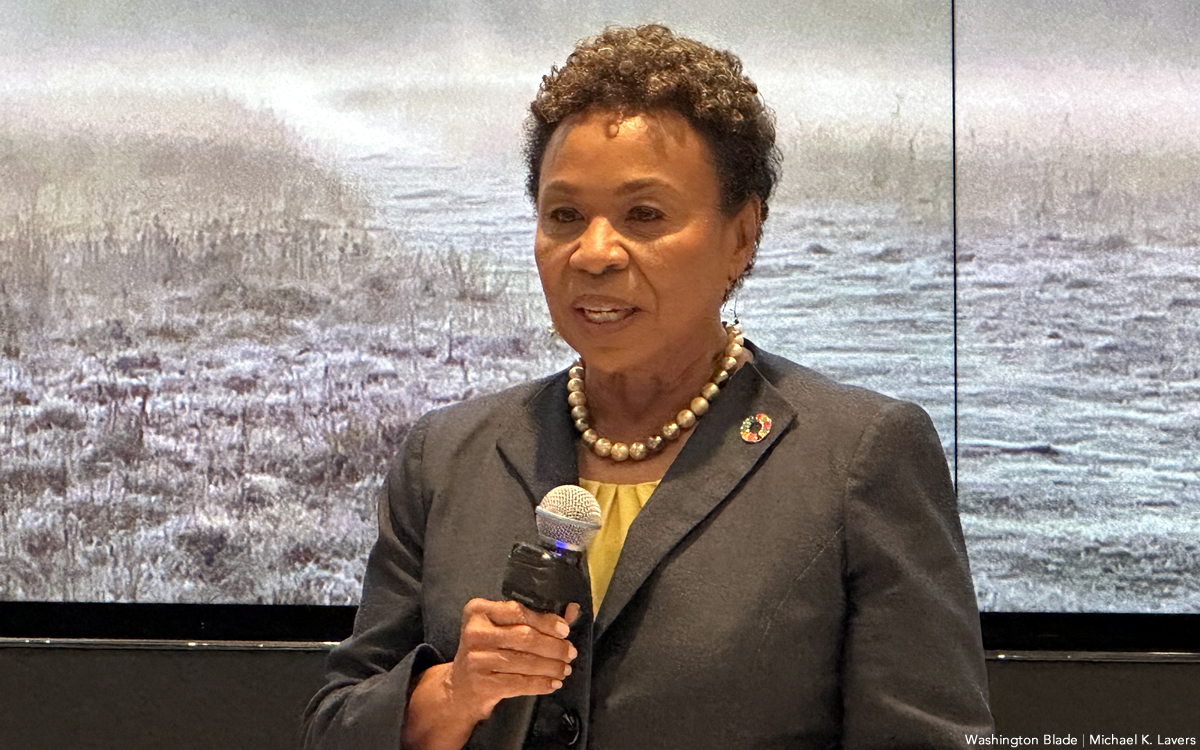
NEW YORK — Government officials, politicians and activists who traveled to New York for the U.N. General Assembly expressed their growing concern over the global backlash against LGBTQ and intersex rights.
“The emergence of this new wave of anti-LGBTQ+ laws first of all is scary, but secondly is deadly,” said U.S. Rep. Barbara Lee (D-Calif.) on Monday during an event the African Services Committee hosted in Manhattan. “We have to really understand what’s at stake with these laws.”
Jessica Stern, the special U.S. envoy for the promotion of LGBTQ and intersex rights abroad, and Dr. Rebecca Bunnell, acting principal deputy coordinator for the President’s Emergency Plan for AIDS Relief, are among those who also spoke at the event. Outright International Executive Director Maria Sjödin, Rainbow Railroad Executive Director Kimahli Powell, activists from Uganda, Kenya, Tanzania and Ghana and journalist Anne-Christine d’Adesky also participated.
Ugandan President Yoweri Museveni on May 29 signed his country’s Anti-Homosexuality Act, which contains a death penalty provision for “aggravated homosexuality.” Lawmakers in Kenya and Tanzania over the last year have proposed similar measures.
A bill that would criminalize LGBTQ and intersex identity and allyship in Ghana is currently before the country’s lawmakers. Police in Nigeria’s Delta state last month arrested more than 200 people at a same-sex wedding.
Lee noted African leaders who champion these bills and laws have alliances with U.S.-based groups that oppose LGBTQ and intersex rights.
“Hate is everywhere and it’s really important that our government do a better job of tracking — of course U.S. persons and organizations and what their role has been advancing these laws,” said the California Democrat.
D’Adesky noted Congress has yet to reauthorize PEPFAR and there is “an enormous fight.”
“The anti-LGBTQ forces, which are the family values (supporters) in the GOP and the extreme right, have been using this issue of HIV funding and HIV programs as a kind of proxy … to go after democratic societies, not just here in the United States, but everywhere,” said D’Adesky. “It’s a very deliberate strategy to link the issue of LGBTQ rights and homosexuality with HIV service provision.”
President Joe Biden on Tuesday in his U.N. General Assembly speech noted PEPFAR has saved “more than 25 million lives” in more than 55 countries around the world.
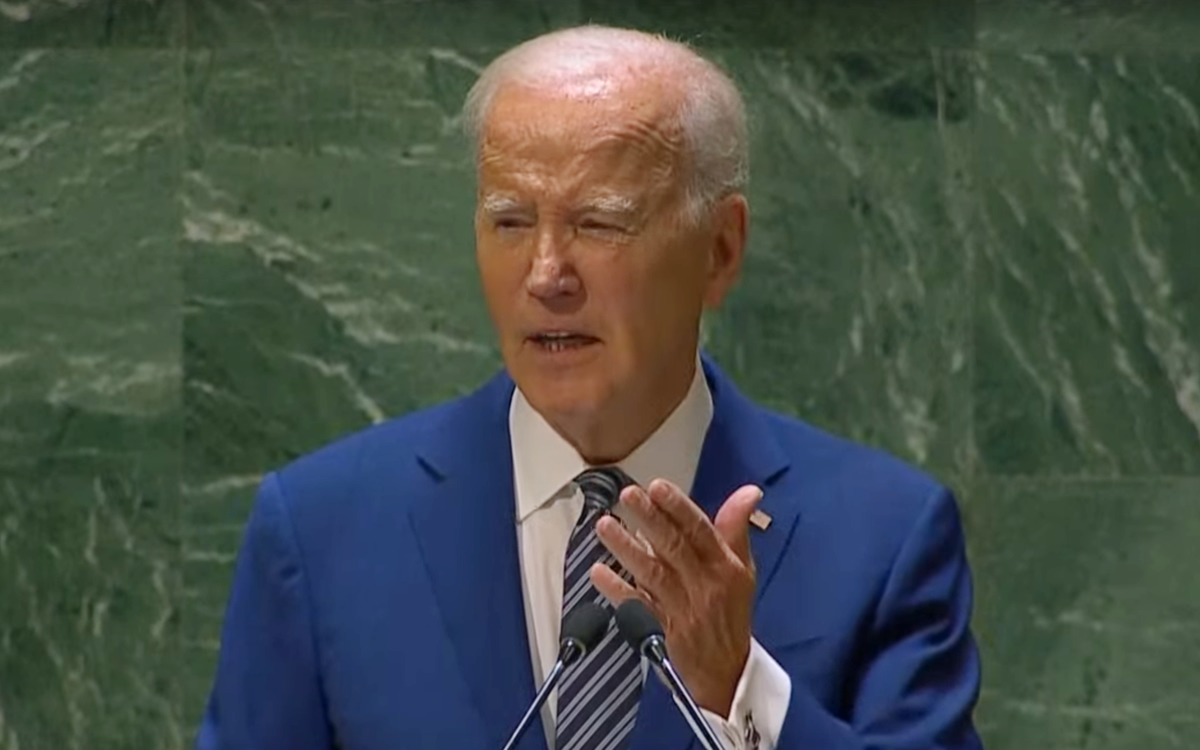
American officials earlier this year postponed a meeting on PEPFAR’s work in Uganda in order to assess the Anti-Homosexuality Act’s potential impact on it.
UNAIDS in a report it released in July raised concerns over a spike in HIV among gay and transgender people in eastern and southern Africa due to anti-homosexuality laws. The U.N. body noted laws that criminalize consensual same-sex sexual relations remain a significant obstacle in preventing and treating HIV among LGBTQ and intersex people.
“We have been trying to find communities and groups that can ensure that everybody has access to life saving services for HIV testing, prevention, PrEP, treatment, etc.,” said Bunnell during the African Services Committee event.
Bunnell, who previously lived and worked in Uganda, described the country’s Anti-Homosexuality Act as “horrific.” Bunnell nevertheless added the law has made LGBTQ, intersex and HIV-specific issues more visible.
“At some level it’s really heartening to see that we are at least able to talk openly and have a conversation where we are now addressing issues that were completely hidden at that time,” she said. “We’re in a very challenging, but better place in that sense.”
Bunnell said she and her colleagues are in “active communication” with Stern and other Biden-Harris administration officials to see “what we can do, where could we restrict funding, where could we make statements, where can we protest against the absolutely horrific legislation in Uganda, where can we more proactively look at other countries that we’ve heard from today.”
The U.S. in June imposed visa restrictions on Ugandan officials.
The World Bank Group on Aug. 8 announced the suspension of new loans to Uganda. The European Union last week said it would continue to provide funding to the country.
Sjödin after the African Services Committee event noted to the Washington Blade that the World Bank has human rights safeguards in place. Sjödin stressed, however, the issue of cutting aid to countries with anti-LGBTQ and anti-intersex rights records is “extremely nuanced.”
“I don’t think that cutting aide is a general remedy for any of this,” said Sjödin. “I don’t think that in general you can say, oh stop all foreign aid to any country where discrimination occurs because as we know this is not isolated to a few countries in Africa. We do know that LGBTIQ people are actively persecuted in many more.”
Openly gay Irish prime minister speaks at UN LGBTQ, intersex rights event
Biden in his General Assembly speech referenced violence and persecution based on sexual orientation and gender identity.
U.S. Ambassador to the U.N. Linda Thomas-Greenfield during an interview with MSNBC’s Rachel Maddow on Monday described Uganda’s Anti-Homosexuality Act as “horrific” and said the U.S. “is doing everything in our power to support the LGBTQ community in Uganda, to ensure their safety and to ensure they are not damaged by this law.”
“We are looking at … how we can continue to provide the good support that PEPFAR provides directly to individuals, to help save their lives without putting that funding through the Ugandan government or through individuals in the Ugandan government who are responsible for implementing this law,” said Thomas-Greenfield. “It’s a huge dilemma, but we have to find a way to do that and we have to find a way to hold those accountable who are basically violating the human rights of the LGBTQ community in Uganda.”
Lee reiterated her criticisms of the Anti-Homosexuality Act when she spoke at an event at the U.N. on Monday that marked the U.N. LGBTI Core Group’s 15th anniversary.
“The United States is deeply troubled by Uganda’s passage of the Anti-Homosexuality Act,” said Lee. “The legislation has already led to arrest, violence and evictions of LGBTQI+ Ugandans and undermine the safety of human rights defenders and healthcare providers serving this population.”
“The United States and Uganda have enjoyed long standing cooperation that have benefited our bilateral relationship and made the region healthier, more prosperous and more secure,” she added. “However, our partnership and Uganda’s standing on the world stage is at risk due to the worsening trends of a closing political and civic space and increasing violations and abuses of human rights, the threat of privacy and the safety of everyone in Uganda, including through the enactment and enforcement of the Anti-Homosexuality Act. These actions ferment hate, support violence, and are no threat to the principle of human rights, development and good governance enshrined in the (Universal) Declaration (of Human Rights.)”
The U.S. is among the dozens of countries that are members of the U.N. LGBTI Core Group, a group of U.N. countries that have pledged to support LGBTQ and intersex rights.
Lee noted Singapore, the Cook Islands, Antigua and Barbuda and St. Kitts and Nevis over the last year have decriminalized consensual same-sex sexual relations. The California Democrat also highlighted Switzerland and Slovenia in 2022 extended marriage rights to same-sex couples; while Iceland, Spain and Cyprus banned so-called conversion therapy.
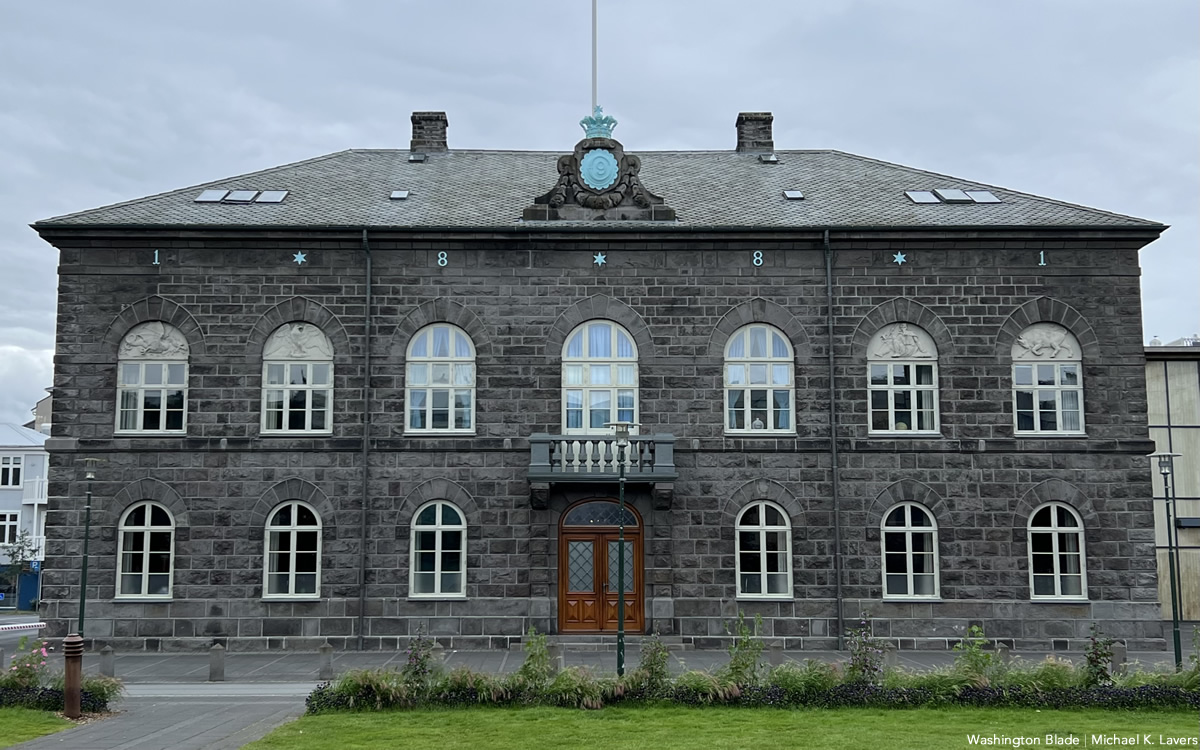
Edgars Rinkēvičs in June became Latvia’s first openly gay president. Spanish lawmakers in February approveda landmark transgender rights law that allows anyone who is over 16-years-old to legally change their gender without medical intervention.
“Despite these gains, LGBTQI+ persons worldwide continue to experience alarming levels of violence, discrimination and isolation,” said Lee. “We are seeing increasingly coordinated efforts to undermine progress on human rights of LGBTQI+ persons worldwide, while seemingly targeted at a small slice of the population.”
Lee in her remarks specifically referenced the U.S. as one of the countries in which “we are seeing hateful shameful attacks on and against the LGBTQI+ persons, especially against LGBTQI children.”
Openly gay Irish Prime Minister Leo Varadkar, Chilean Foreign Minister Alberto Van Klaveren, Norwegian Foreign Affairs Minister Anniken Huitfeldt, Danish Development Cooperation and Global Climate Policy Minister Dan Jørgensen, Belgian Foreign Affairs Minister Hadja Lahbib, French Europe and Foreign Affairs Minister Catherine Colonna, Colombian Multilateral Affairs Vice Minister Elizabeth Taylor Jay, Brazilian Multilaterial Political Affairs Vice Minister Carlos Marcio Bicalho Cozendey and South African Department of International Relations and Cooperation Director General Zane Dangor are among those who also spoke at the event that Victor Madrigal-Borloz, the outgoing independent U.N. expert on LGBTQ and intersex issues, chaired.
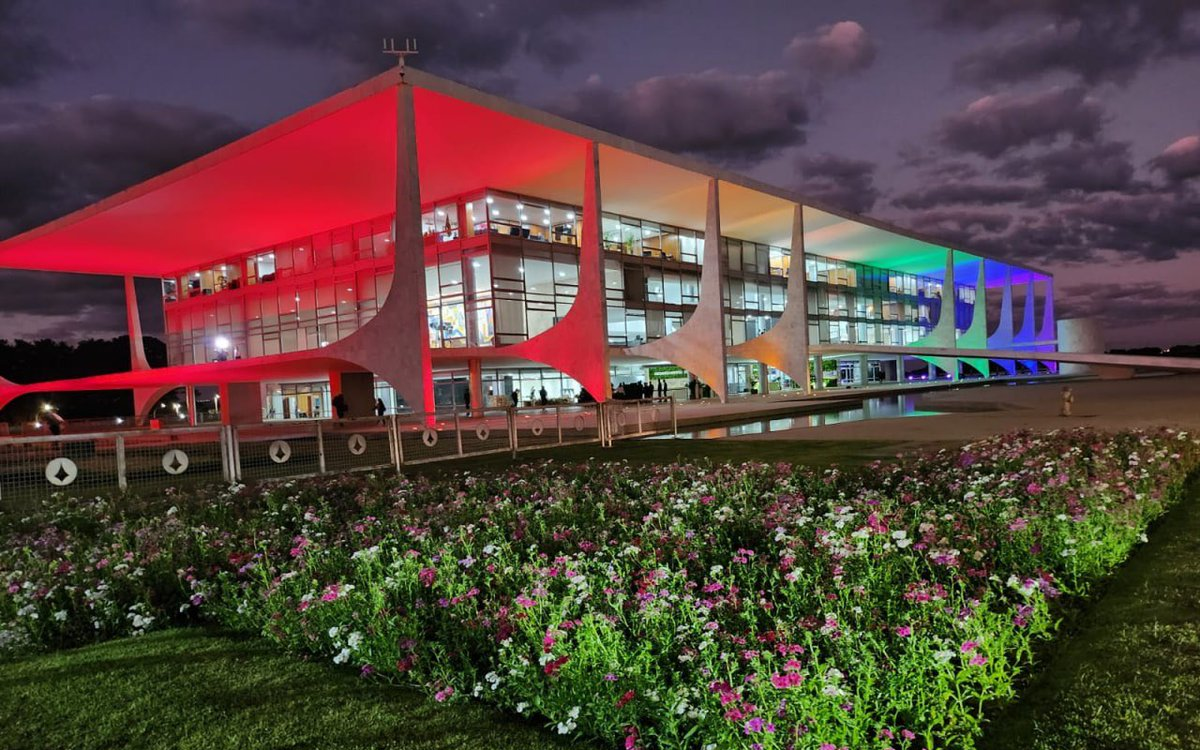
Human Rights Watch Executive Director Tirana Hassan and Chitsanupong Best Nithiwana, a transgender rights activist from Thailand, also participated. Openly gay Luxembourgish Prime Minister Xavier Bettel spoke virtually.
“My country, Ireland, has come a long way in recent years, particularly when we think about its LGBTI+ inclusion,” said Varadkar.
Varadkar said he was in high school when Ireland decriminalized consensual same-sex sexual relations in 1993.
Ireland in 2015 became the first country to extend marriage rights to same-sex couples through a popular vote. Ireland’s Gender Recognition Act took effect the same year. Varadkar noted his government is currently working to expunge convictions under the country’s sodomy law and plans to ban conversion therapy in the country.
“These are major legislative changes, but I think the real effect runs much deeper,” he said. “Our culture and our society has changed and there’s a better understanding of family and inclusion. The Ireland of today is a more understanding or accepting more inclusive and more equal country than it was in the past and more willing to respect fluidity, diversity and personal freedom.”
Varadkar, like Lee and others who spoke at the LGBTI Core Group event, expressed concern “about the alarming pushback against LGBT rights in some parts of the world, particularly criminalization, and the rise of violence, hatred towards members of our community at home and abroad.”
“We see in some countries, the reintroduction of draconian laws, including threat of the death penalty, openness, discrimination, as an increasing backlash against very vulnerable transgender people, and heightened political polarization, including here in the U.N,” he said. “I deeply regret the escalating attempts made by some states to undermine existing international commitments and standards.”
-

 District of Columbia4 days ago
District of Columbia4 days agoCatching up with the asexuals and aromantics of D.C.
-

 South America4 days ago
South America4 days agoArgentina government dismisses transgender public sector employees
-

 Maine5 days ago
Maine5 days agoMaine governor signs transgender, abortion sanctuary bill into law
-

 District of Columbia5 days ago
District of Columbia5 days agoBowser budget proposal calls for $5.25 million for 2025 World Pride












